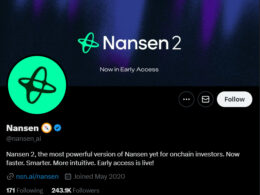Crypto infrastructure giant Infura, which has long been criticized for being a ‘single point of failure’ for Ethereum, is now making efforts to decentralize some of its core components. In collaboration with over a dozen Web2 giants such as Microsoft and Tencent, Infura’s parent company, Consensys, aims to decentralize the network to prevent outages and enhance the reliability of its technology stack. This move will have a significant impact on popular Ethereum applications that rely on Infura for uptime and accurate data, including Uniswap, Compound, and Brave.
Infura’s journey towards decentralization began over a year ago when they first announced their plans. In August 2023, they published a blog post detailing the implementation of their Decentralized Infura Network (DIN), which involves federating the RPC layer. By routing requests based on a federated system of providers with distinct offerings, DIN offers failover support for Ethereum and its layer 2 Polygon network. This means that in the event of an outage, Infura can redirect traffic to its partners, ensuring uninterrupted service.
The Growing Web3 Ecosystem
Andrew Breslin, senior product manager at Consensys, explained that the complexity and cost associated with running a service like Infura limited their ability to partner with other entities. However, the emergence of a robust Web3 infrastructure ecosystem now provides numerous complementary services. Breslin stated, “Now there’s this huge flourishing ecosystem of Web3 infrastructure providers that can provide a service that’s complimentary to Infura.”
DIN is a significant step towards a more censorship-resistant and decentralized Ethereum network. It reduces reliance on a single provider and allows users to access Ethereum dapps with greater freedom. Infura and its 18 partners are working as equal partners in this federated phase of DIN. This decentralization effort not only improves the robustness and reliability of the network but also addresses concerns about government actors disrupting its functionality through legal actions or planned attacks.
Comparing Ethereum and Bitcoin
While Infura is not essential for Ethereum to function, it plays a crucial role in ensuring the smooth operation of various Ethereum applications. In contrast, running a complete Bitcoin node requires significantly fewer resources for average users. However, Ethereum is generally regarded as being more programmable compared to the Bitcoin network.

















